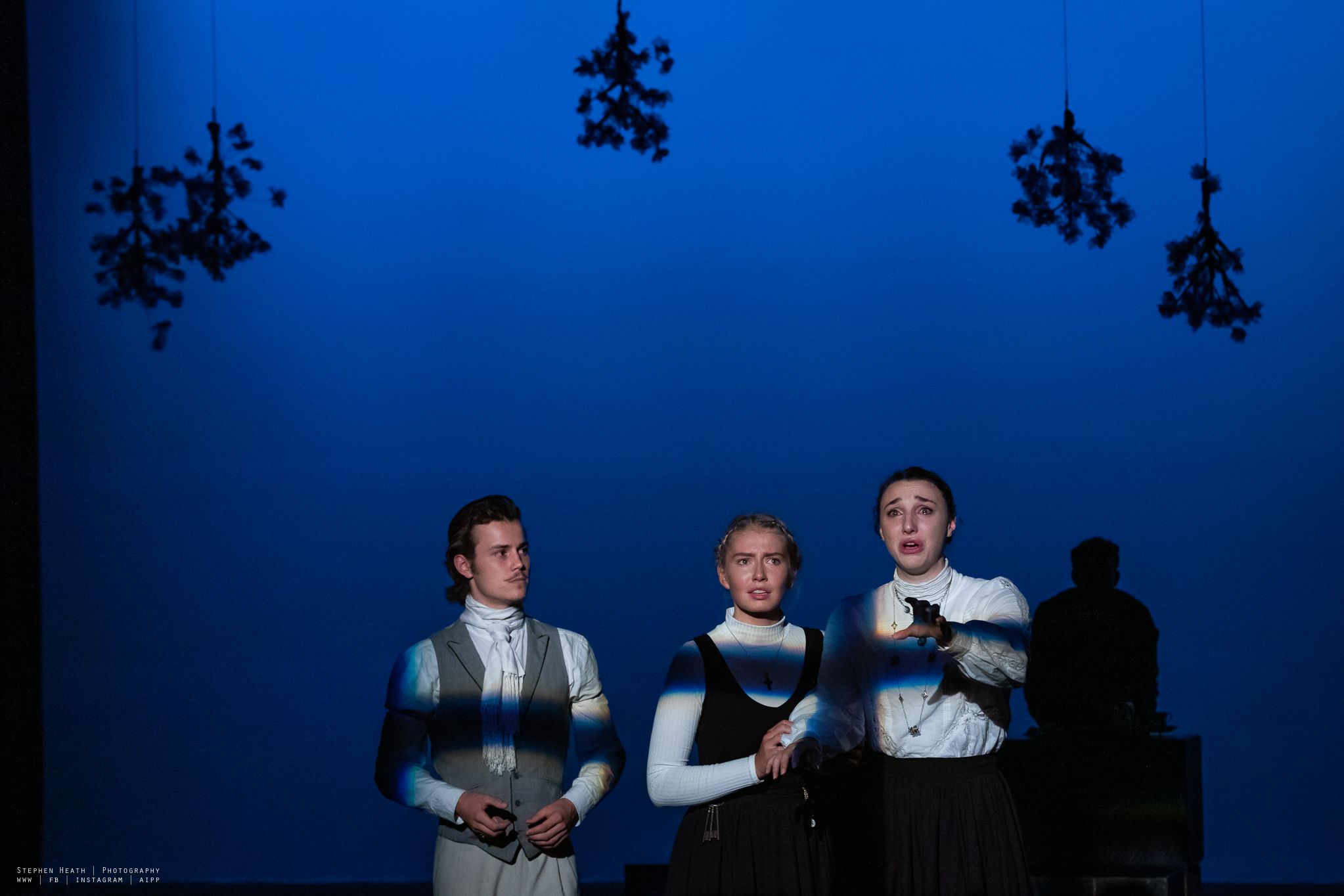The Cherry Orchard, by Anton Chekhov, is a challenge, and to stage it is brave; directors from Konstantin Stanislavsky to Peter Brook have grappled with it. So, the Western Australian Academy of Performing Arts (WAAPA)’s choice to give it to their 2nd year acting students is unexpected, but exciting, and proof that they’re not afraid to throw their actors out of their comfort zone. Michael Abercromby, fresh from writing/directing his fast and funny show SLATE at the FRINGE WORLD Festival, returns to WAAPA to take on something a little different.
A disclaimer to start: student theatre is student theatre. The 50-year-old aristocrats are a bit baby faced, and white hair is painted on thick. Look past it.
The play, Chekhov’s last, is intensely political. The disillusioned and faltering landowners are in the midst of a cultural revolution – the old ways are losing their vigour; the methods of upholding them are lost; and once where there was a flourishing orchard is a slowly withering field. They are in a stifling amount of debt, yet are unable to remove themselves from lazy lounging, drinking and talking about not much at all.
This is communicated well through the sparseness of the set, where the couches and tables have become bare, lifeless blocks, or are often not even present; there is a moment in Act One where Leonid (Jackson Rutherford) gives a rousing birthday speech to an invisible bookcase. Above, flowering cherry branches hang haphazardly. I like this simplicity – it gives force and primacy to the characters themselves, who are undeniably the true beauty of the play. The lighting brightens and mellows with their moods, and is evocative without being distracting.
Yes, the characters. They are written so vividly, the actors must balance every role with a light, airy, who-gives-a-shit humour, and the heavy burden of their failings. There is a sadness at the core of the play that is danced around until it’s impossible to ignore, hinted at by the matriarch Lyubov (Lucy Lock)’s sudden scares.
Most of the actors achieve performance success, and there are a few standouts. Jackson Rutherford gives a fantastic performance as Leonid Gayev. He embodies the aloof and comical uncle with every deliberately chosen movement, and his words have a brilliant colour that is a joy to hear and to watch. The manservant Yasha (Joshua Virgona) is also wonderfully played, equally charming and slimy, easy to love and easy to hate.
Charlotta Ivanova (Isabelle Basen), the gun-wielding governess, is played with a strength and solidity that is in excellent contrast to the other characters; she is bright and full of life. Lucy Lock’s Lyubov is equally loveable and pitiable, and is performed with an immersive love and care for others, although I wish she was more commanding.
Finally, the ensemble was also fantastic – the servants playing and drinking on stage as the audience sits down is just great. They have a palpable energy as a group, especially during the worker/wanderer confrontation in Act Two.
However, I felt the farcical elements are played up a little too much in certain ways. Not the actor’s fault, but I noticed the audience laughing at Firs (Evan Confos) a little too much, which distracts from the potency of his musings on the past and the tragedy of his abandonment. Additionally, a few characters are lacking enough charisma and drive to set themselves apart.
Overall, Michael Abercromby has done well with some difficult material. He has built the moments of tension beautifully, and his raw humour easily translates in the work.
4 stars.
Words by James Brooks

